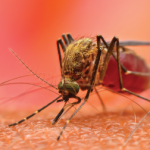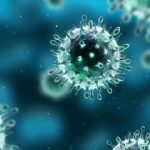Patients with acute chikungunya (CHIKV) experience an intense burst of cytokine production. The cytokine surge is evident in the early and the persistent, symptomatic phases of the disease. Recovered patients continue to have elevated cytokines. The cytokine profile may provide some clue to the presence or absence of lingering symptoms.
A recent study from India found that patients who recovered from CHIKV within one month of illness had an elevated tumor necrosis factor (TNF)-α, interleukin (IL)-6, and IL-13 response, but a low anti-CHIKV IgM response. By contrast, patients with CHIKV who go on to have persistent musculoskeletal symptoms have an early persistent IgM response, a lower IgG response and an intense Th2 cytokine phenotype.
Anuradha Venugopalan, PhD, deputy director of the Research and Development Laboratory at the Center for Rheumatic Diseases in Pune, India, and colleagues, published their analysis of the 2006 Indian epidemic of CHIKV in the October issue of PLoS One.1 They performed a prospective survey of the serological cytokine phenotype of patients in a rural community outbreak. The survey included blood samples from 225 individuals (43% of the 509 clinical CHIKV cases). The investigators focused their analysis on cytokines that are characteristic of acute illness.
The survey was prompted by the clinical observation that certain patients who had been diagnosed with CHIKV went on to develop arthritis and rheumatism. Serum analysis of this patient population revealed an intense Th2 cytokine profile phenotype that persisted beyond the acute phase of disease.
Detailed serum analysis revealed that a rapid cytokine response appears to be critical for limiting illness. Type I IFN is quickly induced upon infection with the virus and interferon production stimulates a robust innate immune response against the viral infection. Other pro-inflammatory mediators that have been implicated in the clearance of CHIKV include TNF-α, monocyte chemoattractant protein-1, IFN-ɣ, IFN-α/β, and IL-6. The investigators note that IgM is typically detectable four days after illness begins, and IgG is detectable later, during the acute phase of disease.
“We demonstrated an early intense interferon response (IFN-α, -β, -γ) which persisted in patients with extended symptoms,” wrote the authors in their paper. “Persistent interferon response is likely to be associated with a failure to eradicate virus by the host, at least during the current study period of four weeks post-illness onset.”
The investigators also identified an elevated IL-13 signature in several patients who had extended symptoms. They went on to speculate that a persistent, heightened IL-13 response might be associated with the continued arthritis seen in some patients with CHIKV.
The investigators followed these survey cases for 12 to 24 months and continued to collect blood samples in order to test for cytokines, as well as autoantibodies characteristic of rheumatic diseases. The results, however, are not included in their current publication. (posted 12/23/14)
Lara C. Pullen, PhD, is a medical writer based in the Chicago area.
Reference

